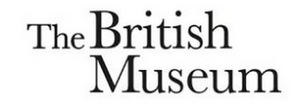The British Museum's Circulating Artefacts Project Works to Stop Trafficking of Cultural Artefacts

The British Museum's Circulating Artefacts (CircArt) project is a ground-breaking collaborative initiative against the widespread global trade in illicit antiquities, with a current focus on ancient objects from Egypt and Sudan.
The CircArt platform combines a restricted object database with an online public service: registered users can bring an artefact to the attention of subject specialists, who assess each object for possible evidence that it was illegally excavated or supplied.
Over 4,700 artefacts have thus far been identified with provenance issues, with many now under investigation by law enforcement agencies.
CircArt offers to heritage professionals a programme of training and expertise, as well as an eLearning course in English and Arabic.
CircArt is funded by the British Council's Cultural Protection Fund, in partnership with the Department for Digital, Culture, Media and Sport.
Hartwig Fischer, Director of the British Museum says, 'The British Museum is absolutely committed to combatting the rising levels of trade in illicit material across the world. The CircArt platform is an important step in this fight, allowing those who want to make a positive difference - museums, government agencies, auction houses, collectors, sellers, and the general public - to share information and expertise to help counteract the illegal removal and trade in ancient objects.'
Growing levels of looting are affecting archaeological sites, storerooms and museums around the world. As a result, much illicit cultural property enters and freely circulates on the international art market. The provenance and context of these objects is often unclear or missing, which greatly diminishes their value for understanding the past. CircArt is a British Museum-led collaborative project that seeks to gather and examine evidence, and to support the identification of illicit artefacts. Funded by the British Council's Cultural Protection Fund, in partnership with the Department for Digital, Culture, Media and Sport, the project started in April 2018.
CircArt documents artefacts in a closed semantic system, incorporating a database and sophisticated search tools that reveal patterns in object movements. Information is collected from publicly available sources, contributed by users of the CircArt platform, and generated through specialist research. This allows a dedicated team of Egyptologists to offer uniquely informed expertise on objects submitted for appraisal. Anyone can sign up to the CircArt platform and seek support in provenance research, and thereby join a growing, collective effort to counteract the looting and trafficking of cultural property. Through its proactive research and services, the platform is promoting higher standards of due diligence among the sellers and buyers of artefacts.
Since its launch, CircArt has identified over 4,700 objects with evidence suggesting illicit provenance. Many objects are currently the subject of investigations by law enforcement agencies. Major examples of recently repatriated pieces include temple reliefs from various temples in Luxor and Karnak. Thanks to the British Museum's research, a larger slab from Asyut, which had been offered for auction in London, was returned to Egypt, where since 2018 it is displayed in the Sohag Museum.
CircArt supports heritage professionals in Egypt and Sudan with research, enabling them to engage with the platform to best effect. London-based training has been delivered to four staff from the National Corporation of Antiquities & Museums (Sudan). CircArt assists Egyptian and Sudanese experts in determining, from object-based research, which archaeological sites and facilities are being targeted by looters. Workshops organised by CircArt in Cairo and Khartoum promote a deeper understanding of what is causing and enabling illicit trade, of the legal framework in which the art market operates, and of effective ways to address the problem. Contributors include fellow heritage professionals, legal experts, art crime investigators, and representatives of the art market itself. The project is also working with universities that train heritage professionals, assisting students who will be the future managers of archaeological sites, museums and storerooms, to be responsible for the informed implementation of vital protection measures. To enable a wider transmission of skills and expertise, the CircArt platform also offers an eLearning course on counteracting the looting and trafficking of cultural property. Available in English and Arabic, it is aimed at heritage professionals and law enforcement agencies.
CircArt offers advice to all who support the platform's objectives. We also lend our expertise to law enforcement agencies, many of which now avail themselves of the service. The project has partnerships with the Metropolitan Police (Art & Antiques unit), Interpol (Stolen Works of Art unit), the World Customs Organisation, the Association for Research into Crimes against Art (ARCA), and the Antiquities Trafficking and Heritage Anthropology Research (ATHAR) Project. Most importantly, there is engagement from an ever-growing range of relevant parties.
Neal Spencer, Keeper of Nile Valley & Mediterranean Collections at the British Museum, said, 'Focus on provenance in the past has been on the documentation and tracing of objects that have been reported as stolen. Our project differs in using Egyptological expertise to assemble evidence relating to an object's ultimate archaeological origins, not just its collection history. This is a genuinely collaborative and vital project'.
Ikhlas Abdllatief from the National Corporation for Antiquities and Museums, Sudan said 'Thanks to CircArt, the National Corporation for Antiquities & Museums in Sudan now has the ability, as well as a fully equipped unit with trained staff, to fight the trafficking of our country's precious heritage. The CircArt platform greatly improves our ability to support police and national security in the protection of our cultural property.'
Videos
.png)